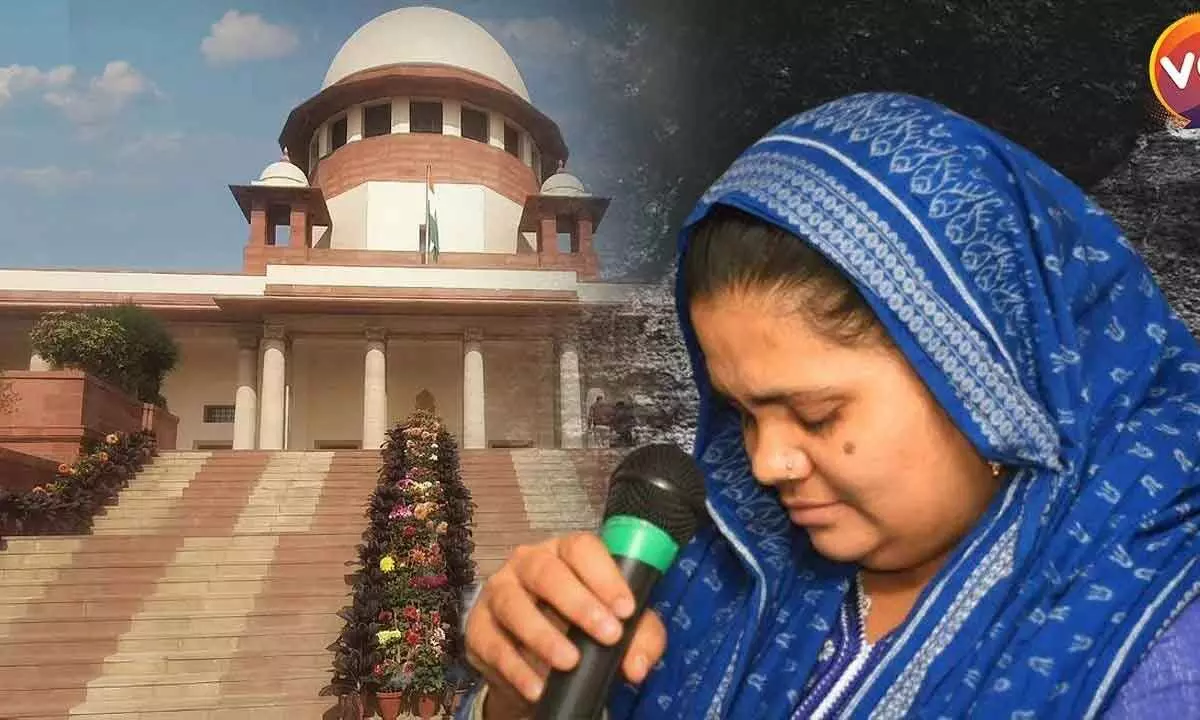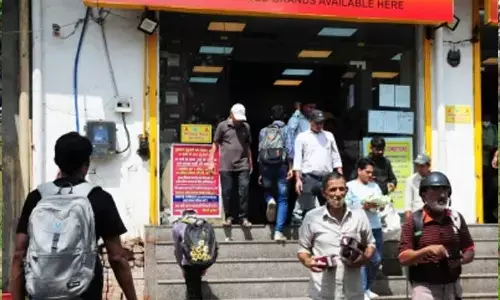Remission panels must rethink present norms

The Supreme Court has dismissed the review petition filed by Gujarat riots gangrape survivor, Bilkis Bano challenging the apex court's judgement (of May 13th) which had held that remission of the convicts who raped her should be considered as per the the policy existing at the time of conviction in the State where the crime was actually committed i.e. Gujarat.
The Supreme Court has dismissed the review petition filed by Gujarat riots gangrape survivor, Bilkis Bano challenging the apex court's judgement (of May 13th) which had held that remission of the convicts who raped her should be considered as per the the policy existing at the time of conviction in the State where the crime was actually committed i.e. Gujarat.
This should come as a huge blow to not only Bilkis Bano but all of humanity. This is not about the 'Gujarat Government' or about a particular political party. The order was passed by a bench of Justices Ajay Rastogi and Vikram Nath.
No one disagrees with Bilkis Bano or with her attempt to seek 'justice'. Remission of a sentence on whatever grounds sounds cruel to the common public. The pain and emotional turmoil that Bilkis Bano might have undergone only she would have known. No one ever should forget the fact that this survivor will always live in the past - experiencing the trauma inflicted on her on that particular day when she also lost her three year old daughter to the hoodlums.
Much has been written about the perpetrators of crime against humanity. It always makes us wonder how and why one is given a remission in such crimes. However, Indian laws provide pardoning power sourcing from statutory and constitutional authorities. By virtue of article 72 and 161 of the Constitution of India, the President and Governor can grant pardon, to suspend, remit or commute a sentence passed by the courts.
In addition to the above constitutional provisions, the Criminal Procedure Code, 1973 (Cr. P.C) provides for Suspension, remission and commutation of sentences. Sections 432, 433, 433A, 434 and 435, empower the government to suspend or remit sentences. Further, Sections 54 and 55 of the Indian Penal Code (IPC) confer power on the appropriate government to commute sentence of death or sentence of imprisonment for life as provided therein.
Section 54 of the Indian Penal Code 1860 empowers the appropriate Government i.e. the Central Government in the case of an offence committed in the Union Territories, and State Government in case of an offence committed in the States, to commute i.e. to change a punishment to one of a different type than the originally awarded the sentence of death to any other punishment provided under the Code.
The powers vested under Section 55 can be exercised by the government on its own initiative with no application by the accused in question. Bano's plea contended that the remission policy of the State of Maharashtra should apply in the present case, instead of 1992 remission policy of Gujarat since the trial in the case had happened in Maharashtra.
The Supreme Court had on, May 13, ruled that remission of the convicts in the case should be considered as per the policy existing at the time of conviction in the State where the crime was actually committed. Sounds too cold? Unfortunately, Law has no emotions. It should not also. The SC is right in pronouncing the judgment thus.
But, the lawmakers need not have been so cold. This was no ordinary crime. There should have been no further consideration for such criminals whatever might have been their conduct later. Bano will now suffer her punishment till her last breath while the criminals celebrate their 'reformed lives'. Why this soft corner for the criminals?
Let us meanwhile, have a look at the 'power' to remit a sentence itself further.
The power of the President or Governor to remit a sentence awarded by the court is absolute and cannot be fettered by any statutory provision such as Sections 432, 433, 433A of Criminal Procedure code, 1973. This power cannot be altered or modified or interfered with in any manner by any statutory provision or Prison rules. That makes it an absolute power, a power that cannot be questioned at all.
Again, the authority of the Government to grant remission or to suspend sentence under Section 432 of Cr.P.C is independent of the power conferred on the Governor under Article 161 of the Constitution, no matter both the Government and the Governor have concurrent powers in regard to suspension, remission and commutation of sentence. These powers vested with the two - the government and the Constitutional authority enjoy this absoluteness.
Let us not get into the 'powers' issue here. It will cloud our judgment. More important question in such cases is whether any discretion is required in exercising the power or not. Philip Stanhope, 4th Earl of Chesterfield, has said once "Judgement is not upon all occasions required, but discretion always is". Of course, Stanhope was referring to the criminal procedure system itself and not about the remission issue. Still, his words are applicable to every situation. The term judicial discretion has nowhere been defined in the statues though it is exercised regularly by courts of law. It is exercised when a judge is conferred a power under a statute that requires the judge to choose between several different, but equally valid, courses of action.
When judges could use discretion, why not these 'authorities' with such 'absolute powers'? Back to Constitutional provisions under Article 72 and 161 and the other statutory provisions, under Section 433A of Cr.P.C. which look similar but not exactly the same. As legal experts opine, the power which is the creature of the Code cannot be equated with a high prerogative vested by the Constitution in the highest functionaries of the Union and the States.
The source is different, the substance is different, and the strength is different, although the stream may be flowing along the same bed. Higher the power the more cautious it would be. This is particularly so because Section 433-A has been passed by the Parliament on being sponsored by the Central Government itself. The Parliament introduced Section 433-A by the Code of Criminal Procedure (Amendment) Act, 1978, it has been pointed out by them.
Noted human rights lawyer Indira Jaisingh felt "Not only does the release send out a signal – a dog whistle – that it is okay to kill and rape people of the minority community, it also has a devastating impact on Bilkis Bano herself, who has expressed the fear that her life and her family members' lives are in danger."
Should anything more be said to the remission authorities?










